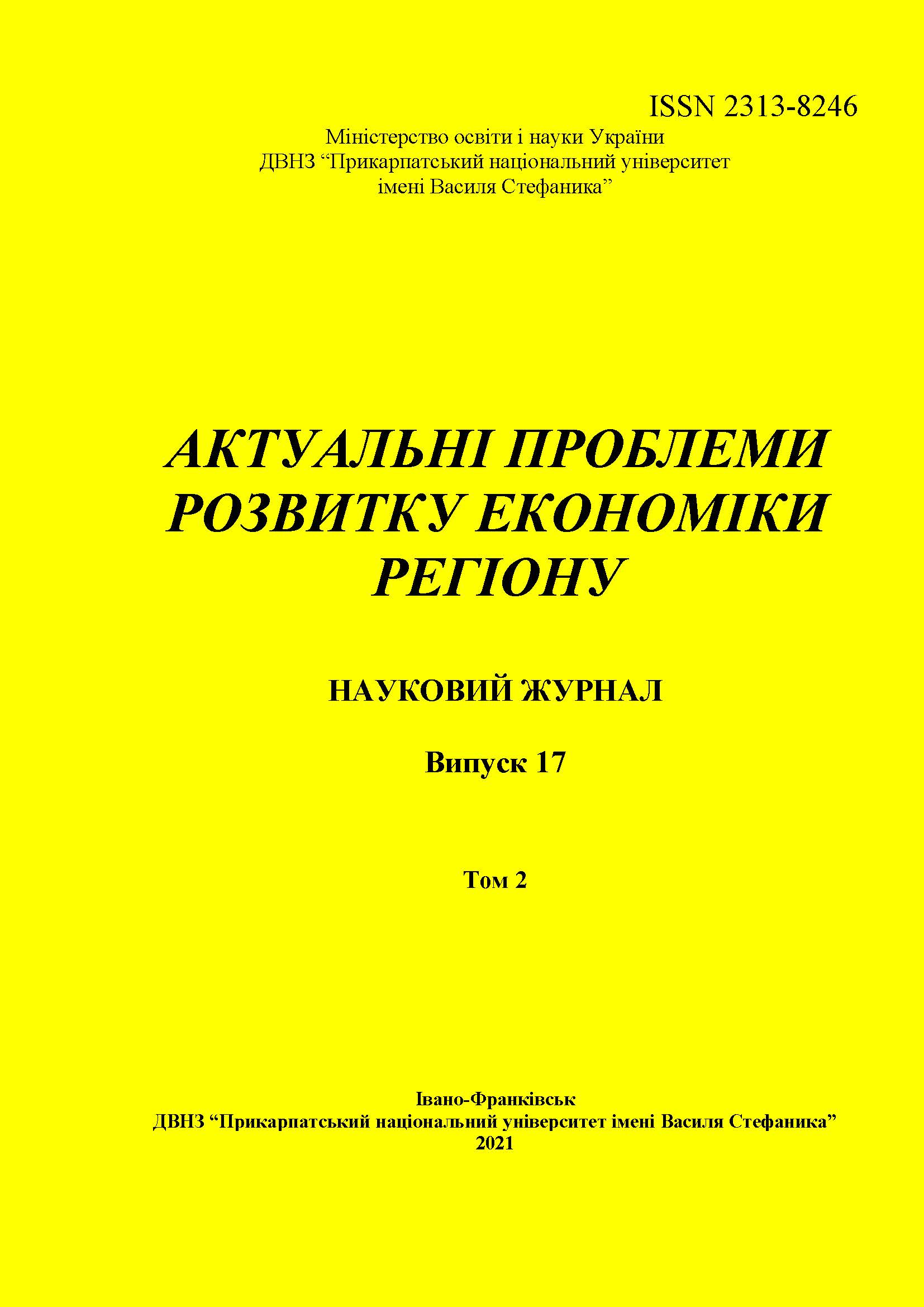SYSTEM OF ECONOMIC LEVERS OF STIMULATION OF RATIONAL NATURE MANAGEMENT
DOI:
https://doi.org/10.15330/apred.2.17.281-287Keywords:
nature management, natural resources, taxes, payments, greening, pollution, discharges, modernizationAbstract
Today, nature management is understood as various forms of using the potential of natural resources and measures for their protection. These include: exploitation and processing of natural resources and their restoration, use and protection of natural living conditions, conservation and restoration, rational changes in the ecological balance of natural systems.
Each country sets its own natural standards in its territory. However, in recent years, due to increased transboundary movements of various pollutants and national activities that threaten the entire planet (deforestation, nuclear weapons testing, nuclear expansion, etc.), more and more attention is paid to the signing of international conventions on methods and standards.
In our state against the background of economic problems, certain problems of food and housing, shortage of goods the problem of complex and cardinal ecological improvement is constantly postponed, the problem of rational nature management is not solved, and the number of emergencies increases.
The experience of developed countries has shown that the power of the state is determined primarily by the high level of culture and technology, including - the culture of nature. The same experience, as well as the experience of domestic management convince that it is impossible to move further along the old economic development, a new concept of nature management is needed.
Further uncontrolled, uncontrolled development of human activity can have catastrophic consequences for the life of the entire planet. Therefore, the main task of the economics of nature is to study the best options for adapting the global socio-economic system to changes in the biosphere, to determine the optimal anthropogenic pressures on the environment using all possible economic incentives. This science must develop the basic principles of action of these incentives.
The purpose of this article is to study the rational use of natural economic levers, to formulate the basic principles of environmental security and economic development of the country, to improve the mechanism of payment of environmental tax.
Empirical, theoretical research methods, modeling and synthesis methods were used during the writing of the article.
The result is the coverage of problematic environmental issues related to the collection of environmental tax and the formulation of proposals to improve taxation to achieve a harmonious relationship between society and nature and the preservation of the natural environment.
The scientific novelty of the article is that it analyzes the impact of reducing environmental pollution factors on public health, which is achieved by improving the national system of nature management.
Practical significance - the possibility of improving taxation to achieve a harmonious relationship between society and nature and the preservation of the natural environment is considered.
References
2. Galushkina, T.P. Economics of nature management. Kharkiv, Burun Book, 2009.
3. On Protection of Economic Competition. Law of Ukraine. Laws, www. laws. com. ua / econom. html? catid = 48934. Accessed 25 Oct. 21.
4. Matviychuk, V.K., Chugaenko, Y.O., and O.I. Savenkov Ecological policy in the system of state management of the national economy. Kyiv, National Academy of Management, 2013.
5. Ministry of Finance of Ukraine, www.minfin.gov.ua. Accessed 23 Oct. 21.
6. Novytska, N. “The essence and social purpose of environmental taxation.” The world of finance, no. 3 (48), 2016, pp. 62—73.
7. SECTION VIII. ENVIRONMENTAL TAX. Minfin, www.minfin.gov.ua. Accessed 24 Oct.21.
8. Sagaidak, I.S., and S.Ya.Tsymbalyuk. “Environmental tax in the context of environmental expenditures.” Management of public finances and problems of ensuring national economic security: coll. thesis International. of the Tax Congress, December 3, 2020, Irpin. Irpen, Unt state. fiscal service of Ukraine, 2020, pp. 908—911, ir.nusta.edu.ua/bitstream/ 123456789/6554/1 / 6726_IR.pdf Accessed 25 Oct.2021.
9. Shvabiy, K.I. “The impact of globalization on the taxation system and tax policy of Ukraine KI.” Strategist. Priorities, no.1 (10), 2009, pp. 137 - 144.
Downloads
Published
How to Cite
Issue
Section
License
- Authors retain copyright and grant the journal right of first publication with the work simultaneously licensed under a Creative Commons Attribution NonCommercial NoDerivs 4.0 Unported License that allows others to share the work with an acknowledgement of the work's authorship and initial publication in this journal.
- Authors are able to enter into separate, additional contractual arrangements for the non-exclusive distribution of the journal's published version of the work (e.g., post it to an institutional repository or publish it in a book), with an acknowledgement of its initial publication in this journal.
- Authors are permitted and encouraged to post their work online (e.g., in institutional repositories or on their website) prior to and during the submission process, as it can lead to productive exchanges, as well as earlier and greater citation of published work (See The Effect of Open Access)


